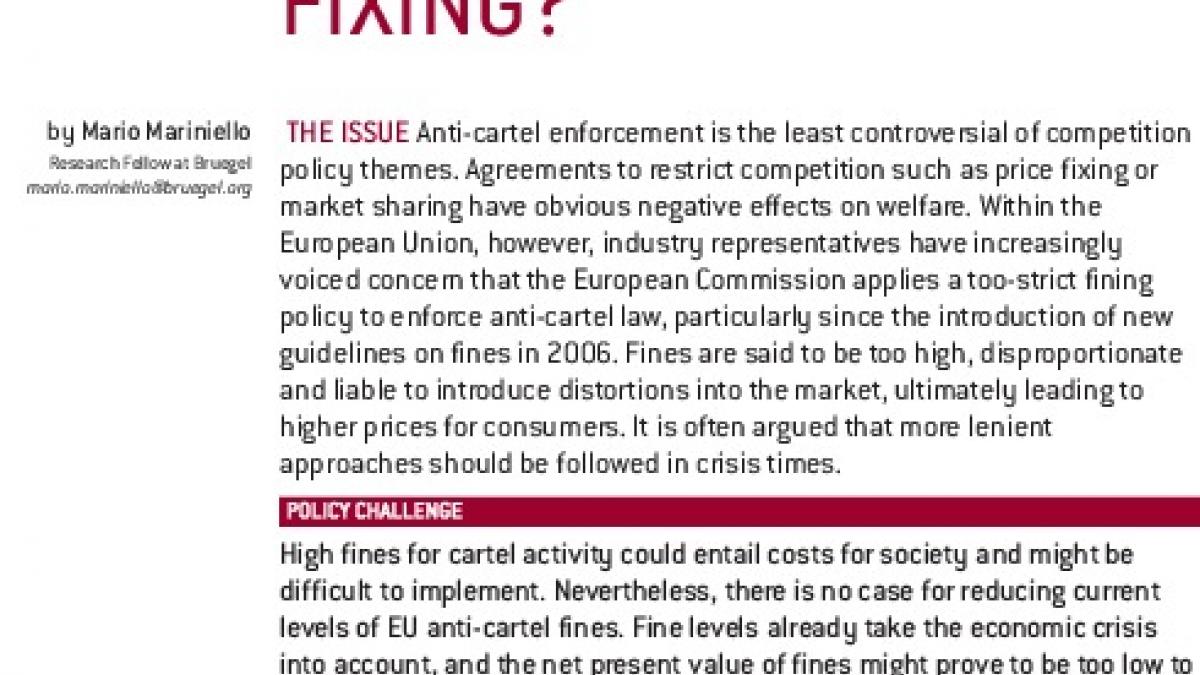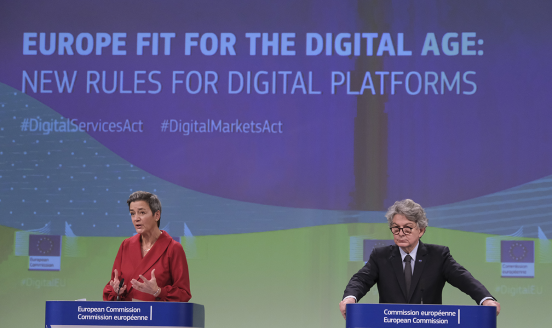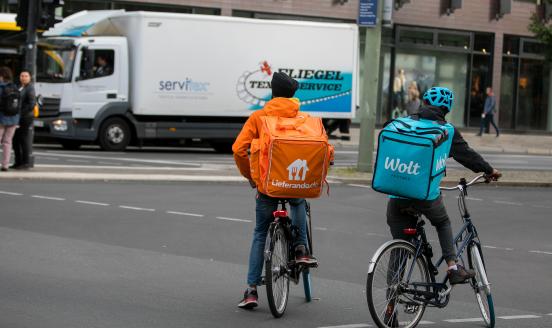Do European Union fines deter price-fixing?
The issue: Anti-cartel enforcement is the least controversial of competition policy themes. Agreements to restrict competition such as price fixi

The issue: Anti-cartel enforcement is the least controversial of competition policy themes. Agreements to restrict competition such as price fixing or market sharing have obvious negative effects on welfare. Within the European Union, however, industry representatives have increasingly voiced concern that the European Commission applies a too-strict fining policy to enforce anti-cartel law, particularly since the introduction of new guidelines on fines in 2006. Fines are said to be too high, disproportionate and liable to introduce distortions into the market, ultimately leading to higher prices for consumers. It is often argued that more lenient approaches should be followed in crisis times.
Policy challenge: High fines for cartel activity could entail costs for society and might be difficult to implement. Nevertheless, there is no case for reducing current levels of EU anti-cartel fines. Fine levels already take the economic crisis into account, and the net present value of fines might prove to be too low to discourage collusion. We estimate that fines might even be not high enough to offset the additional profits yielded by collusion. Fines should be complemented with other measures to increase deterrence, in particular personal sanctions targeting company officers who are responsible for leading the company to commit infringements. In the short term, pressure on decision makers could be increased by reducing the expected duration of investigations.



